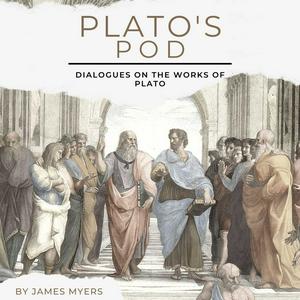Welcome to Plato's Pod, a podcast of discussions on the dialogues of Plato, the philosopher and geometer who wrote nearly 2,400 years ago. Hosted by amateur philosopher James Myers, the first four seasons of the podcast featured group discussions and some incredible insights on many of Plato's works. Now in our fifth season, we continue to probe the philosophy of Plato's dialogues, with invited guests discussing selected topics and applying the timeless philosophical principles to contemporary issues and circumstances.We welcome your thoughts and suggestions for discussion topics, and please contact us if you or someone you know would be interested in being a guest on the podcast. We can be reached by e-mail to
[email protected]. Episodes are lightly edited for clarity, with care to avoid compromising the contributions made by participants. Wherever our discussions take us, we gain knowledge from each other’s perspectives and Plato, without a doubt, would have imagined no better way than in dialogue for knowledge – which is the account of the reasons why – to find its home.

